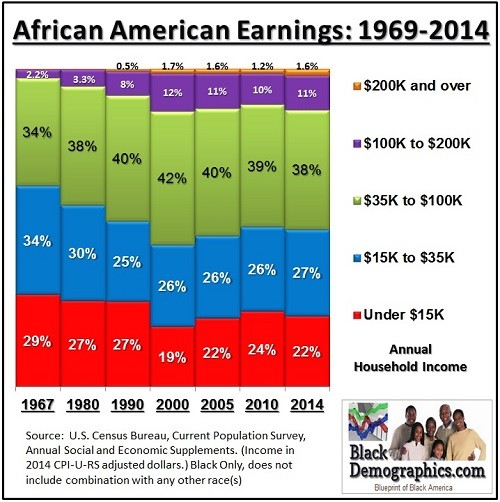I suspect the average black person would take the problems that come with freedom over the chance of being lynched or beaten for attempting the exercise. Just a guess mind you, but an educated one.
Here's an article you won't read:
The North isn’t better than the South: The real history of modern racism and segregation above the Mason-Dixon line (link).
An excerpt: "[FONT=&]When black migrants streamed north during and after World War Two, James Baldwin reflected, “they do not escape Jim Crow: they merely encounter another, not-less-deadly variety.”[/FONT]
Which is it?
Because nothing says "victim" like referring to yourself by a color?

lain: Do you get any sillier or is this bottom?
Then he was wrong. The black middle class grew with the opportunities available after the passage of civil rights legislation.
Economic growth, public policy, black skill development, and the civil rights movement all contributed to the surfacing of a larger black middle class. The civil rights movement helped to remove barriers to higher education. As opportunity for African Americans expanded, blacks began to take advantage of the new possibilities. Homeownership has been crucial in the rise of the black middle class, including the movement of African Americans to the suburbs, which has also translated into better educational opportunities. By 1980, over 50% of the African American population had graduated from high school and eight percent graduated from college. In 2006, 86% of blacks between age 25 and 29 had graduated from high school and 19% had completed a bachelor's degrees.[13] As of 2003, the percentage of black householders is 48%, compared to 43% in 1990.[14]
Before the Civil Rights Act et al., the graduation rate of blacks from high school was around 20%, which in tandem with other restrictions limited upward economic mobility.

